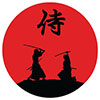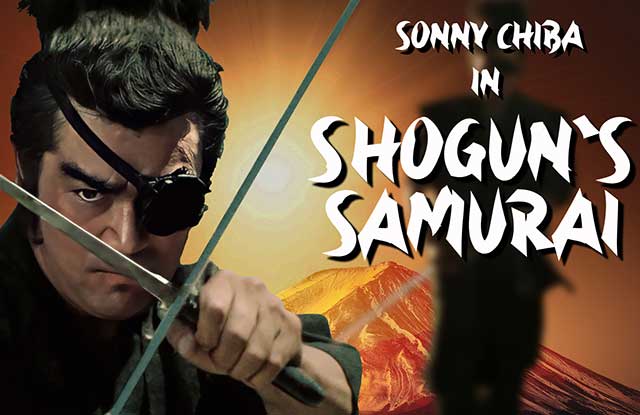
Shogun's Samurai, is a 1978 Japanese historical martial arts film directed and co-written by Kinji Fukasaku. This film is the first of two unrelated Fukasaku films starring Shinichi "Sonny" Chiba as Jubei Mitsuyoshi Yagyu, with the other being Samurai Reincarnation.
In 1624, Shogun Tokugawa Hidetada of the Tokugawa shogunate dies at Edo Castle. His taster, Komuro Kihei, also commits suicide, leading to suspicions of poisoning. Hidetada's eldest son, Iemitsu, is set to inherit, but Hidetada prefers his second son, Tadanaga, who is bright and admired. Hidetada’s wife, Oeyo, uses her influence to back Tadanaga, while other ministers support Iemitsu. The scheming nobles Sanjo Saneeda and Karasuma Ayamaro plot for the government’s downfall.
Ninjas hired by Doi infiltrate the shogun's tomb and cut out his heart, but it is stolen by Yagyu's daughter, Akane. Yagyu determines Hidetada was poisoned and confronts Chamberlain Matsudaira and Lady Kasuga. Matsudaira admits to poisoning Hidetada, explaining that Kihei administered the arsenic.
Meanwhile, the lovers Hayate and Mon become independent Negoro fighters seeking to reclaim their homeland. They receive a request, ostensibly from Tadanaga, to support the young prince. Jubei joins them and helps fend off Koga ninja spies. Tadanaga confronts Iemitsu about the poisoning, but his claims are denied, and Iemitsu refuses to allow the body to be examined.
Doi resigns, citing illness. Iemitsu appoints Matsudaira as Chief Chamberlain and Yagyu as Inspector General, preparing for Tadanaga's potential coup. The nobles in Kyoto refuse to take sides, forcing the brothers to resolve their conflict independently. Various powerful lords, including Ogasawara Genshinsai, support Tadanaga, hoping for political gains.
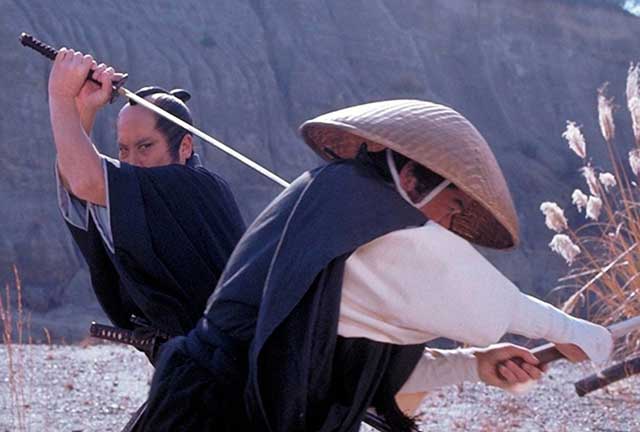
The Yagyu siblings and Negoro warriors attack Doi, but are stopped by Karasuma Ayamaro, who kills one of Yagyu's sons. Mon infiltrates Lady Kasuga's harem to guard Iemitsu. Genshinsai challenges Yagyu but is injured by Jubei during the fight. Seeking aid, Genshinsai enlists his former apprentice Yukinojo, who disguises as a handmaiden and attacks Iemitsu. Mon saves Iemitsu but is injured.
A battle on Minobu Road sees Sagenta and Akane killed. Jubei is sent to Kyoto to eliminate troublesome nobles. He kills Lord Ayamaro and accuses Sanjo Saneeda of attempting to fight Tokugawa and restore imperial control.
Iemitsu plans to seek the emperor's support in Kyoto to secure his position as the new shogun, but Tadanaga attempts to reach the emperor first. A trap at Kisei River leads to a deadly ambush. Tadanaga realizes the trap and retreats.
Following Yagyu's advice, Iemitsu denounces Tadanaga, gaining the support of the lords. Even Lord Date sides with Iemitsu, and Tadanaga’s estate is occupied. Tadanaga surrenders to spare his men, but his retainer Bekki charges at Ando's men and is killed. Tadanaga is exiled to Takasaki. Jubei becomes a wandering ronin.
Okuni performs for the lord of Owari at Nagoya Castle. Sanza, blinded during the attack on Iemitsu, explains the betrayal. Yagyu orders Tadanaga to commit seppuku, which he does. Most Negoro warriors are slaughtered by imperial soldiers. Sanza kills Okuni at her request, and Genshinsai is killed by Yagyu in a final duel. Jubei confronts the traitor Matajuro and learns of the massacre.
Iemitsu becomes shogun and sends Yagyu a message that the Yagyu Shikage school will continue. Jubei beheads Iemitsu and throws the head at Yagyu's feet, then chops off Yagyu's right hand. Yagyu wanders away, insisting it must be a dream.
See also
-
Tatara Samurai
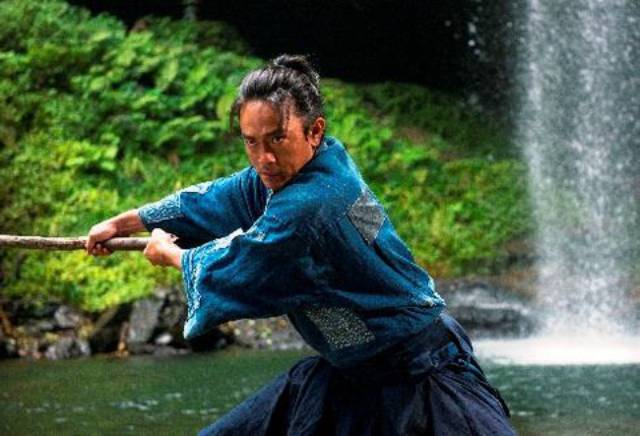
One day, bandits raid the quiet Tatara village, renowned for its steelworks and sword craftsmanship. Despite the arrival of samurai to protect the villagers, young Gosuke's mother is tragically killed while fleeing with him.
-
Samurai Fiction
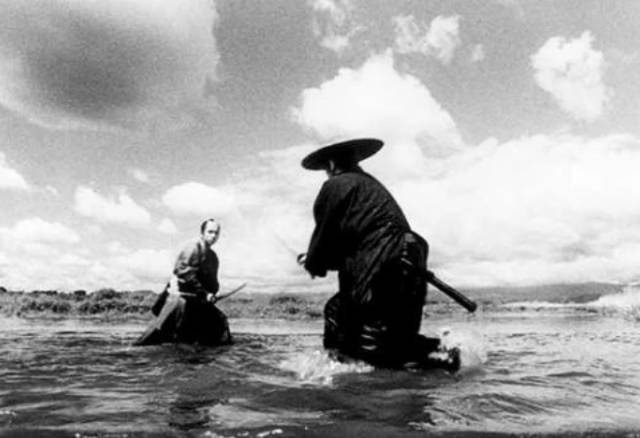
Samurai Fiction is a 1998 samurai-comedy film directed by Hiroyuki Nakano. The movie stands out for being filmed almost entirely in black-and-white, paying homage to classic jidaigeki samurai films. However, what sets it apart from its inspirations, including the works of Akira Kurosawa, is its modern twist, notably Tomoyasu Hotei's rock-and-roll soundtrack. A loose spinoff, Red Shadow, was released in 2001.
-
Rurouni Kenshin
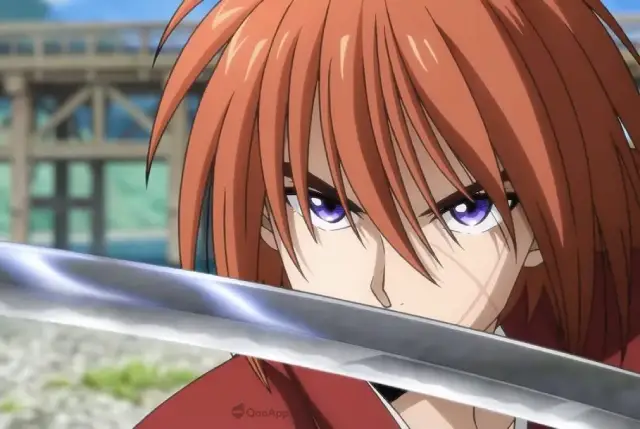
Rurouni Kenshin: Meiji Swordsman Romantic Story (Japanese: Hepburn: Rurōni Kenshin -Meiji Kenkaku Roman Tan-) is a Japanese manga series created by Nobuhiro Watsuki. Set in 1878, during the 11th year of the Meiji era in Japan, the story follows a former assassin known as Hitokiri Battosai. After his role in the turbulent Bakumatsu period, he adopts the identity of Himura Kenshin, a wandering swordsman who vows never to kill again. He dedicates his life to protecting the people of Japan. Watsuki crafted this series with the intent to create a unique shōnen manga, distinguishing it with a protagonist who is a former assassin and a narrative that becomes increasingly serious as it progresses.
-
Samurai Spy
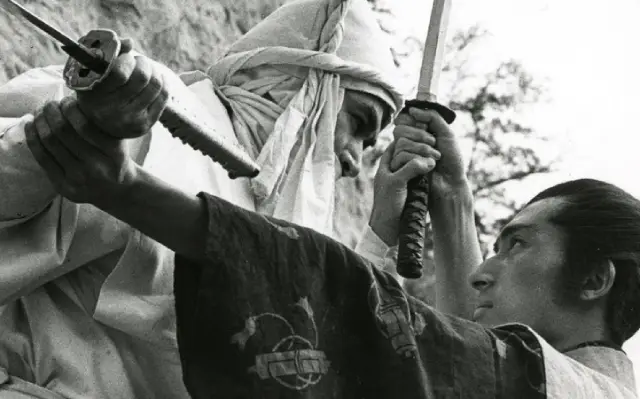
Samurai Spy (Ibun Sarutobi Sasuke), also known as Spy Hunter, is a 1965 film directed by Masahiro Shinoda, adapted from a novel by Koji Nakada. The film follows the legendary ninja Sasuke Sarutobi as he hunts the elusive spy Nojiri, while a shadowy figure named Sakon leads a group of men with their own designs on Nojiri. As the pursuit unfolds, the lines between allies and enemies blur, leaving everyone unsure of each other's true allegiance. Created during the height of the Cold War, the movie reflects the complexities and shifting loyalties of spies caught in the power struggles of their era.
-
Samurai III: Duel at Ganryu Island
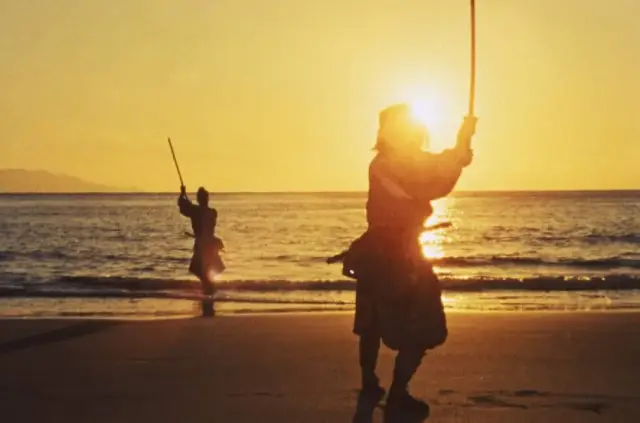
Samurai III: Duel at Ganryu Island (Japanese: Hepburn: Miyamoto Musashi Kanketsuhen: Ketto Ganryūjima) is a 1956 Japanese film directed by Hiroshi Inagaki and starring Toshiro Mifune. Filmed in Eastmancolor, it serves as the concluding chapter of Inagaki's Samurai Trilogy.
-
Samurai Marathon
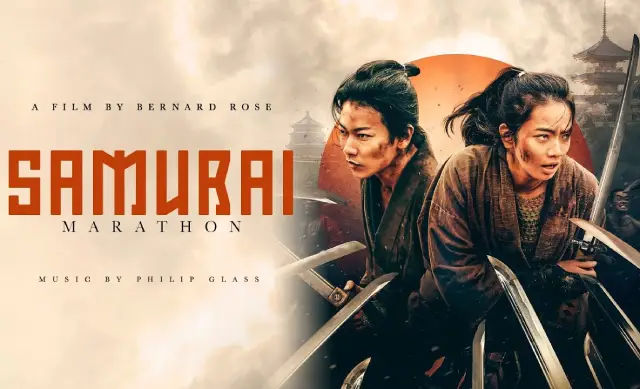
The producing team behind Takashi Miike's "13 Assassins," Jeremy Thomas and Toshiaki Nakazawa, reunite for another visually striking and action-packed samurai film. Based on a novel by Akihiro Dobashi, this film may not reach the same heights of relentless carnage or critical acclaim as its predecessor, but it still offers an exciting and occasionally humorous addition to the samurai genre, likely to resonate with festival audiences. This story of a literal running battle between rival samurai factions could see moderate success in theaters, though it may require more marketing effort without the ultra-violent appeal that made "13 Assassins" memorable.
-
Samurai II: Duel at Ichijoji Temple (1955)
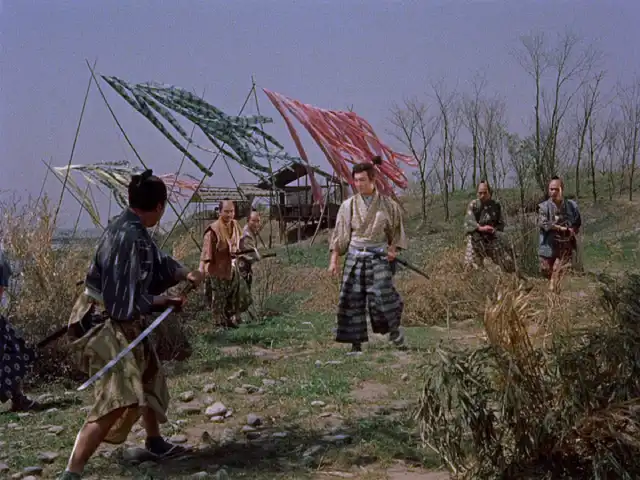
Duel at Ichijoji Temple (Hepburn: Zoku Miyamoto Musashi: Ichijōji no Kettō) is a 1955 Japanese film directed by Hiroshi Inagaki and starring Toshiro Mifune. Filmed in Eastmancolor, it is the second installment in Inagaki's Samurai Trilogy.
-
The Samurai I Loved (Semishigure)
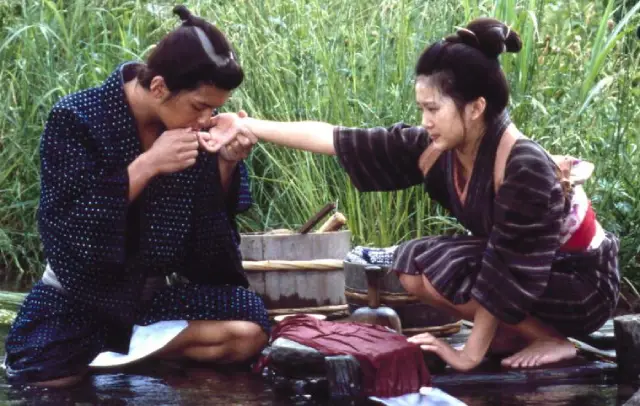
The costumes, settings, and script of The Samurai I Loved immediately transport samurai film enthusiasts back to the golden era of classic black-and-white samurai masterpieces.

